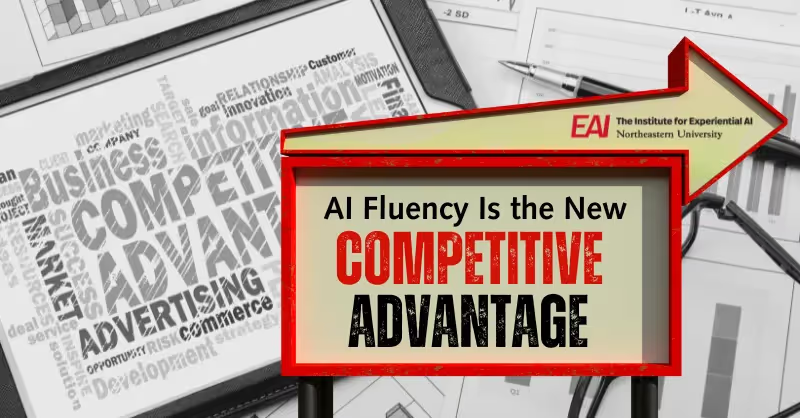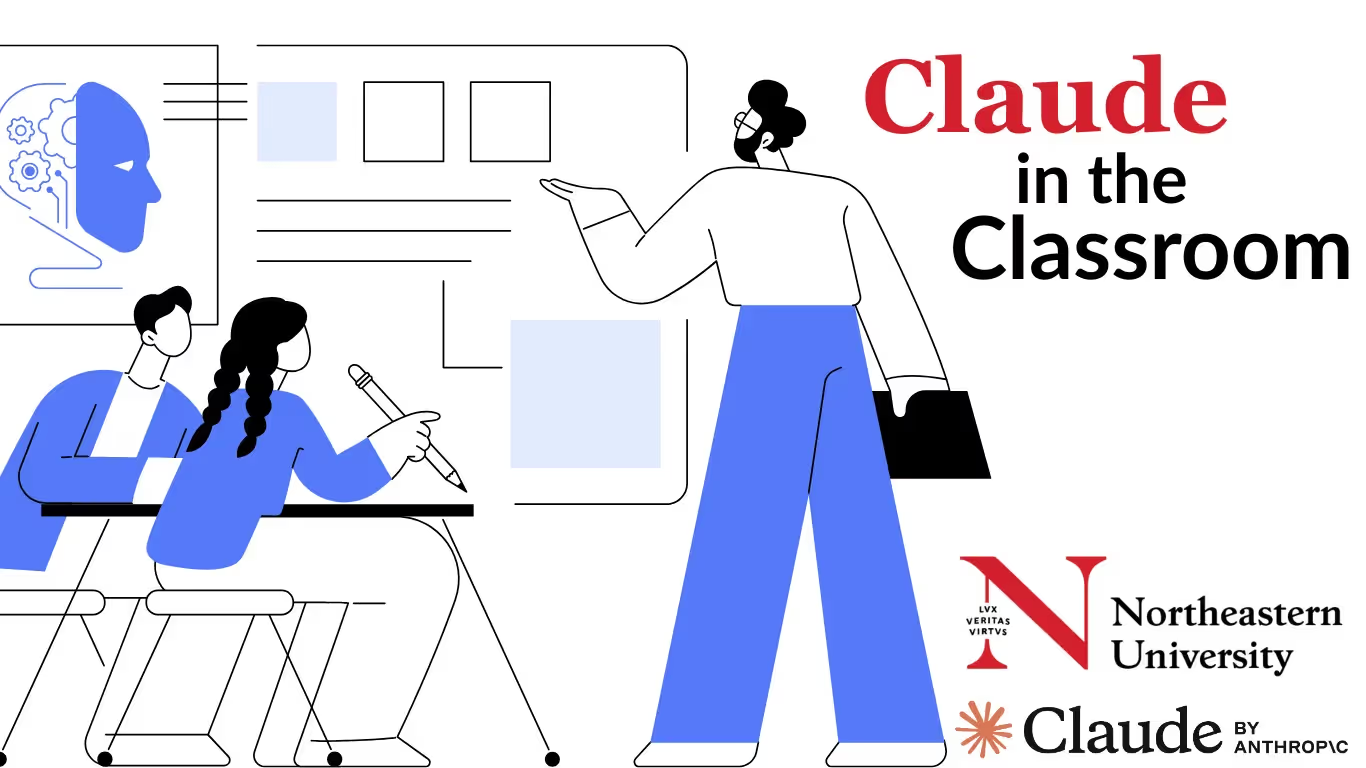Creating a More Data Literate Society
.avif)
Leaders in academia, industry, and government came together to share strategies for advancing data literacy at an event co-hosted by the Institute for Experiential AI last week.
The two-day event, held in conjunction with the Harvard Data Science Initiative, aimed to establish frameworks for transforming the landscape of data literacy across society, with a special focus on schools and the workplace.
The meeting came at a time when data proficiency is an increasingly essential skill for workers in every sector. Nearly all jobs are “data jobs” in today’s digital economy, and data is the driving force behind the much-hyped artificial intelligence models dominating public discourse.
Throughout the day, participants offered a number of definitions of data literacy and proposed many potential solutions for building data literacy. But one idea they coalesced around was the importance of being able to craft compelling data narratives to inform decision makers and the public.
Innovative Strategies to Intractable Problems
The event began with a dinner reception Tuesday, Dec. 5, attended by workshop organizers and a select group of attendees. The dinner also included short talks by Harvard University Professors Bharat N. Anand and Xiao-Li Meng, Northeastern University Provost David Madigan, and Institute Senior Advisor Hamit Hamutcu.
A morning conference and afternoon workshop took place the following day, with experts presenting their experiences working to improve data literacy in their own organizations as well as among the public more broadly.
Judi Spaletto, digital literacy leader for the advisory practice at KPMG, shared her experience overhauling a data literacy program at the company. Spaletto achieved huge gains in participation rates for the program by creating a series of virtual, micro-learning courses in combination with virtual instructor-led courses that offered more flexibility and personalization for the learners. She also initiated a program to recognize people who developed skills in key areas.
Hamutcu also presented at the conference. He discussed new frameworks for data literacy that he developed as part of independent research work that was partially funded by the Roux Institute at Northeastern University.
As part of that work, Hamutcu developed the idea of the “data citizen,” whom he describes as “people who work with data but aren’t data professionals, have foundational knowledge and skills relating to data, or have the ability to understand and work with data to make better informed decisions and improve outcomes in their field of work.”
Hamutcu said that last part is key: “The ultimate goal is to make better decisions.” The framework can be used to inform their education and training initiatives.
In another session, panelists discussed strategies for overcoming roadblocks to starting data literacy initiatives in businesses, including providing use cases that clearly impact the bottom line and using common terminology that everyone understands.
"In industry, everything is a tradeoff," BigID Director of Data Advisory Stephen Gatchell said. "You have to have a very good story about exactly what you're going to deliver [with data literacy training], when you're going to deliver it, and how you're going to deliver it."
In a panel discussing teaching data literacy in schools in the age of ChatGPT, Nora Gannon-Slater, a senior researcher at the American Institutes for Research, said AI is already helping schools improve equity by doing things like using school performance data to identify students who should be encouraged to take honors courses. Still, she thinks there are limits to AI's potential impact in the classroom.
"If you say you want to put a kid in front of a screen and you’ll input what they're learning and it will spit back all these lessons, you're treating education like a medicine that can be dosed, when really education is a social interaction between people," Gannon-Slater said. “No generative AI system is going to replace the value of that interaction.”
In a conversation hosted by Alicia Jalbert, the director of community partnerships at the Roux Institute at Northeastern University, leaders in STEM education discussed challenges like equipping teachers with computer science knowledge and improving access to STEM education for students in low-resource areas.
Before joining Roux, Jalbert worked in one of Maine's largest school districts. When she began in that role, less than 3 percent of the district's students had access to computer science instruction. Through her subsequent work over the next four years, that number increased to more than 75 percent.
"When we're talking about data citizenship and making sure these opportunities are accessible, we need to truly make sure that everyone in the population is recognized in those conversations," Jalbert said.
A panel discussion hosted by Sam Scarpino, the Institute’s Director of AI + Life Sciences, covered the competing interpretations of data at the heart of the controversies surrounding the Covid-19 pandemic. Scarpino discussed his experience founding a technology cooperative to make sense of the poorly structured data available during the early days of the outbreak. The cooperative went on to build a number of decision support tools for public officials around the world.
"Often, data systems are among our first lines of defense for identifying public health threats," Scarpino explained.
Michael Workman, creative director of the AI Literacy Lab, underscored the significance of data visualization during the pandemic, noting the public’s sudden obsession with dashboards that tracked daily cases and hospitalizations.
A key theme on the day was the importance of storytelling in data communication.
"You should never bring statistics to a story fight," Scarpino said.
Thriving In A Data Centric World
The event concluded with an invitation-only workshop among experts aimed at synthesizing learnings from the day and organizing insights for specific applications such as developing data literacy courses for college undergraduates, launching data literacy initiatives within companies, and advancing data literacy in government. Insights from the workshop will be considered for publication by Harvard Data Science Review.
Participants agreed that bringing together different stakeholders helped sharpen their overall approach.
“Everything we do has some element of data, so I think it’s really important to join academia, government, and industry,” Spaletto said after her talk. “[Businesses] can learn from the academic institutions, and we can help them understand business demands to better prepare students for the workforce.”
Concord Consortium CEO Chad Dorsey agreed with that sentiment. His nonprofit uses technology to research and develop more effective methods for teaching STEM at scale. He says the public is starting to wake up to the importance of improving data literacy.
“Data is everywhere,” Dorsey said. “It governs our lives in ways we recognize and many ways we don’t. It builds and persists inequities, and if we understand it, we have a chance at guiding it, but most of the time it’s guiding us. Collaboration is always important when data is involved, because data literacy is such a cross disciplinary topic. If we’re not collaborating, we’re missing the boat in the very beginning.”

.avif)


